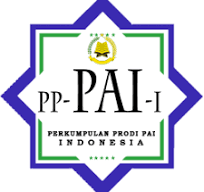PARENTING IN THE MILLENNIAL ERA (Analysis of Childcare Models in the Digital Age with Contemporary Islamic Education)
DOI:
https://doi.org/10.54069/attaqwa.v18i2.132Abstract
Children are always associated with the parents who give birth to and raise them, because peoplehave the most important role in the child's life in the future. In the digital era, sources of information are increasingly open and there are almost no restrictions on the information received, including children who are also affected. The digital age has a very positive impact, but it also has a negative impact. In this digital era, parenting or the role of parents is needed to guide and supervise children when they are already addicted to the sophistication of digital technology. It all depends on the parenting of his own parents to keep a child with a disciplined attitude of learning. Differences in parental parenting will have an impact on the child's learning discipline. This research uses the use of qualitative descriptive, and the research method used is a literature study, which is research conducted using several books, journals related to problems and research objectives. Parents play a big role in the development of children, in digital areas parents must accompany and be more careful in parenting patterns by Utilizing Technological Developments In More Organized Parenting, Have a Plan, keep spending time with family and appreciate the child's space. Child Parenting in the Digital Age is divided into three categories, namely: (1) authoritarian parenting; (2) democratic parenting; (3) permissive parenting. All types of parenting have their own advantages and disadvantages. In the analysis from the perspective of contemporary Islamic education, it is found that All parenting patterns in the perspective of Islamic education are directed at how children achieve happiness in the world and the hereafter not only success in their world life but also able to obtain success later in the afterlife whose indicator is to have adequate emotional and spiritual intelligence
Downloads
References
Abdullah Nashih Ulwan, pedoman pendidikan anak dalam islam jilid I, (Semarang:CV Asy Syifa 1981)
Agus Suharto. Sex Education For Kids.(Yogyakarta: Kreasi Wacana 2006)
Ainiyah, Nur. 2017. Membangun Penguatan Budaya Literasi Media dan Informasi dalam Dunia Pendidikan. JPII Vol. 2, No. 1 Oktober 2017.
Al Qur’anul Karim, Terjemah Depag 2007
Ali, M dan Asrori, M. Psikologi Remaja. (Jakarta: Bumi Aksara, 2004)
Andayani, B.,&Koentjoro. Psikologi Keluarga: Peran Ayah Menuju Coparenting.(Sidoarjo : Laros 2012) hlm.67
Andriyani, Isnanita Noviya. 2018. Pendidikan Anak dalam Keluarga Di Era Digital. FIKROTUNA: Jurnal Pendidikan dan Manajemen Islam Volume 7, Nomor 1, Juli 2018; p-ISSN 2442 -2401; e-ISSN 2477-5622.
Fatmasari.(2013). Dinamika KedekatanHubungan-Anak: Perbedaan KedekatanAyah-Ibu dengan Anak Laki-lakidanAnak Perempuan TahapRemaja Akhirpada Keluarga Jawa.Electronictheses &dissertation (ETD).Gadjah MadaUniversity.
Harun Nasution,dkk,ed, Ensiklopedi Islam Indonesia (Jakarta: Djambatan,1992)
Herlina, Dyna, Benni Setiawan dan Gilang Jiwana. 2018. Digital Parenting : Mendidik Anak di Era Digital. Yogyakarta : Samudra Biru.
Imam Bukhari, Shohih Bukhari, tt,
Iswan dan Herwina. 2018. Penguatan Pendidikan Karakter Perspektif Islam dalam Era Millenial IR. 4.0. Prosiding Seminar Nasional Pendidikan Era Revolusi “Membangun Sinergitas dalam Penguatan Pendidikan Karakter pada Era IR 4.0” Universitas Muhammadiyah Jakarta, Indonesia, 24 Maret 2018 ISSN : 2621-6477.
Juwita, Dwi Ratna. 2018. Pendidikan Akhlak Anak Usia Dini di Era Millenial. At-Tajdid : Jurnal Ilmu Tarbiyah, Vol. 7, No.2, Juli 2018.
Kartini, Kartono. Psikologi wanita jilid 2: Mengenal sebagai sosok ibu dan nenek. (Bandung: Penerbit Mandar Maju 1992)
Kurnia, Novi, Engelbertus Wendratama, Wisnu Martha Adiputra, Intania Poerwaningtias. 2017. Literasi Digital Keluarga, Teori dan Praktik Pendampingan Orangtua terhadap Anak dalam Berinternet. Yogyakarta : Center For Digital Society (CfDS).
M. Nazir, “Metode Penelitian” (Jakarta: Ghalia Indonesia)
Mansur, Pendidikan Anak Usia Dini dalam Islam (Yogyakarta:Pustaka Pelajar,2005)
Masykur,Arif. Rahasia Kecerdasan Ali bin Abi Thalib Si Super Genius (Yogyakarta:Diva Press,2013)hlm.55
Muhaimin, dkk. Pardigma Pendidikan Islam. Upaya Mengefektifkan Pendidikan Agama di Sekolah, (Bandung:Remaja Rosdakarya,2001)
Musthofa Rembangy, Pendidikan Transformatif: Pergulatan Kritis Merumuskan Pendidikan di Tengah Pusaran Arus Globalisasi (Yogyakarta: Teras, 2008)
Rahmat, Stephanus Turibius. 2018. Pola Asuh Yang Efektif Untuk Mendidik Anak Di Era Digital. Jurnal Pendidikan dan Kebudayaan Missio, Volume 10, Nomor 2, Juni 2018, hlm. 137-273.
Wicaksono, dkk. 2019. Demokrasi Damai Era Digital. Jakarta : Siberkreasi.
Winerda, Indah dan Intan Rawit Sapanti. 2019. Literasi Digital Bagi Millenial Moms. Yogyakarta : Samudra Biru.
Downloads
Published
How to Cite
Issue
Section
License
Copyright (c) 2022 Afandi Afandi, Achmad Anwar Abidin

This work is licensed under a Creative Commons Attribution-NonCommercial 4.0 International License.





